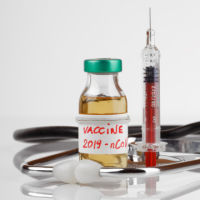The pandemic has changed the way care is delivered, with clinical staff fighting an unknown disease, others being assigned to previously unfamiliar areas, and medical students being involved as workforce. To adapt, clinical educators must change their ways of working and develop new methods of training delivery. The clinical education team at a large London integrated care trust shares their experience of adjusting their training programmes to the new needs (Baldwin et al. 2020).
You might also like:Conception of COVID-19 Auxiliary Hospital from Nursing Management Perspective
London North West University Healthcare NHS Trust (LNWUHT) is one of the largest integrated care trusts in the England and has been one of the first to start accepting COVID-19 patients. The pandemic has been a major stress for all the staff, and LNWUHT nurses in the clinical education team provided support to their colleagues amid the crisis guiding them through constant change. Training was organised in several directions, including personal protective equipment (PPE) use and initial training for redeployed professionals without required skills and students who joined the workforce.
PPE. A trust-wide training
programme on PPE use was rolled out with nurses from the clinical education
team prepared to act as trainers for the rest of the staff. The programme
combined general daily sessions across three hospital sites and tailor-made sessions
in the community settings and for certain departments. The training was
conducted face-to-face, with relevant social distancing protocols in place. Despite
increasing the number of sessions and the overall burden on the training staff,
the face-to-face format proved to be efficient in addressing the needs and
concerns of the participants.
By early May, almost 4,000 staff members had been trained as well as local
GPs and other health professionals. To encourage the staff to upgrade their
skills, an e-learning module was developed with explanatory guides and videos,
which can be accessed remotely and is now used for training via virtual
platforms.
Redeployed staff. Training and support programmes
were developed for different groups of staff redeployed from other areas, including
nurse apprentices, health professionals from non-acute settings, etc. Where
possible, these programmes were combined with standardised national training
resources. It is important to note that the sessions provided not only training
but also a forum to air participants’ fears and concerns, high in those without
acute-setting experience. Since each group had specific needs, assessment was
performed to ensure maximum support and bespoke simulation sessions organised.
Student nurses and midwives. Overall
136 individuals from this group opted in for paid employment to support the
workforce. They were offered an introduction training on blood glucose monitoring and PPE
use. Additional training needs were identified through a self-assessment
document.
Other
clinical training. With COVID-19 all non-essential training at LNWUHT was paused,
but training relating to venepuncture, cannulation, administration of
intravenous (IV) drugs and IV drug calculation examinations remained a priority
to ensure the continuity of care. Practical part is delivered on an individual
basis and theoretical via an online training package. Some exams were
transferred online and the passing criteria were reviewed to increase the assessment
capacity. Participants’ records are kept to provide further support in the
future if necessary.
Staff
health and resilience. To support the staff overburdened by the pandemic,
the programme of restorative supervision is in place providing necessary
practical and psychological support. The programme combines one-to-one sessions
with regular group sessions. The LNWUHT clinical education team has received
positive feedback from the staff about the programme.
New
ways of working. The current environment requires adoption of new ways of
working. Some of the novel initiatives employed at LNWUHT will stay
post-pandemic. To understand what changes are seen as necessary to ensure safe
and continuing training, the staff shared their insight through a series of
open-ended questions. Many pointed out the need to supplement traditional
approaches with technology, such as online virtual learning, e-learning
platforms or webinars. Another area of research for the clinical education team
is to understand the specific sources of anxiety and fear in staff to address
them in the future.
Image credit: Shinyfamily via iStock
References:
Baldwin S et al. (2020) The role of the clinical education team in the response to Covid-19. Nursing Times [online], 116(12):53-56.



























